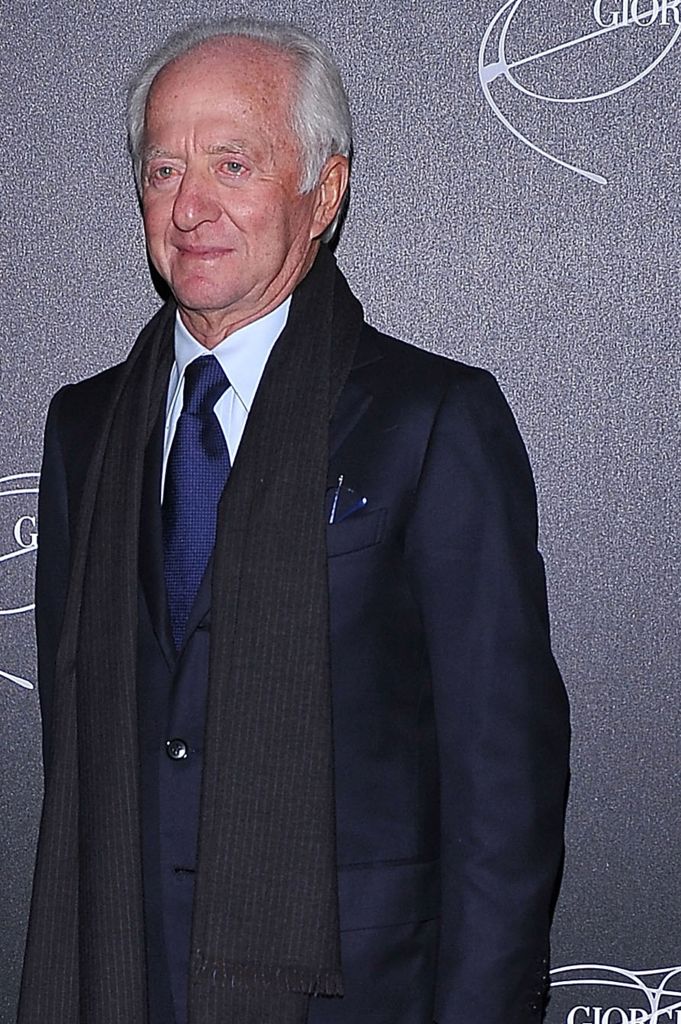
Leonardo Del Vecchio, the Italian entrepreneur who started off with a tiny optics workshop in the Dolomite mountains and ended up as the undisputed world leader in eyewear, has died. He was 87.
His death was confirmed on Monday by Paris-based EssilorLuxottica, the optics giant he created, after earlier reports in the Italian media.
Raised in a Milan orphanage, Del Vecchio struck out from the northern city to set up shop in the town of Agordo, in the Alps north of Venice, beginning as a small supplier of frame parts to local eyeglass makers.
With Del Vecchio as chairman, the eyewear colossus that would eventually become EssilorLuxottica rode a series of often brazen acquisitions to become the world leader in the industry. Iconic brands like Ray-Ban and Oakley were among the scores of targets Del Vecchio snapped up on his way to the top.
Del Vecchio’s net worth was $25.7 billion as of June 1, according to the Bloomberg Billionaires Index.
The tycoon held a controlling 32% stake in EssilorLuxottica, which was formed from the 2018 merger of his Luxottica SpA with French lens maker Essilor. The company, which produces frames for fashion houses like Armani and Prada in addition to owning brands like Ray-Ban, has more than 180,000 employees, operations spanning the globe and a foothold in the luxury and medical technology sectors.
EssilorLuxottica is both the world’s top eyeglass retailer and its biggest producer of corrective lenses.
Shy and Secretive
Shy and secretive by nature, Del Vecchio spent decades carefully avoiding the media spotlight.
During a rare conversation with a reporter earlier this year, he was asked how he built his empire. “I’ve always strived to be the best at everything I do—that’s it,” Del Vecchio said. Describing the drive that took him to the top, he said simply, “I could never get enough.”
In addition to a controlling stake in EssilorLuxottica, Del Vecchio’s Delfin holding also had interests in Italian financial companies such as Mediobanca SpA, Assicurazioni Generali SpA and UniCredit SpA.
Born on May 22, 1935, Del Vecchio grew up poor in Milan. Unable to care for her son, his mother — widowed five months before he was born — sent him to an orphanage when he was seven. He began working as an apprentice to a tool and dye manufacturer in Milan when he was 14.
Del Vecchio moved to Agordo in the 1960s and started a small business making eyeglass frames designed by others. He founded Luxottica in 1961 with a dozen workers on land he got free from the town in a bid to stimulate the local economy.
Luxottica started producing its own designs in the late 1960s, and in the 1980s, Del Vecchio began buying up companies in the US. In 1999, he purchased Ray-Ban for $640 million.
In the early days of his career, Del Vecchio said he “put work before everything else,” dedicating little time to his children. “The factory became my real family,” he said, adding that he had made up for some of the lost time in recent years, spending time with his extended family in Milan, or at his homes on France’s Cote d’Azur and the island of Antigua.
Del Vecchio’s final goal, he said in what would be his final interview, was to push EssilorLuxottica into the exclusive club of companies valued at more than 100 billion euros ($107 billion).
He was the biggest shareholder in investment bank Mediobanca with a stake of just under 20%, and one of the main investors at Generali, Italy’s top insurer. Del Vecchio was a key part of a group of investors that tried unsuccessfully to force out Generali Chief Executive Officer Philippe Donnet in the first half of 2022. At Mediobanca, he periodically clashed over strategy with CEO Alberto Nagel.
Del Vecchio said his skirmishes in the finance industry resulted from thinking big. “You need to be brave enough to keep doing things, to move forward,” he said.
More Must-Reads from TIME
- Cybersecurity Experts Are Sounding the Alarm on DOGE
- Meet the 2025 Women of the Year
- The Harsh Truth About Disability Inclusion
- Why Do More Young Adults Have Cancer?
- Colman Domingo Leads With Radical Love
- How to Get Better at Doing Things Alone
- Michelle Zauner Stares Down the Darkness
Contact us at letters@time.com